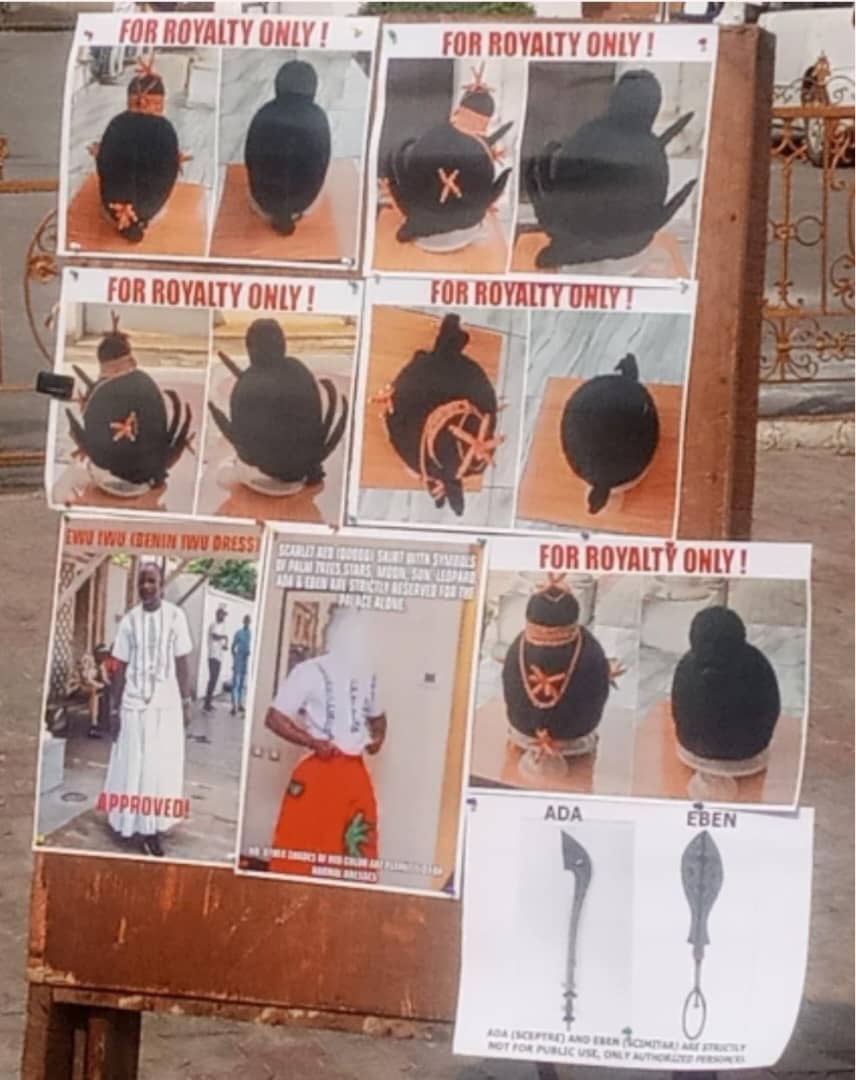Report by
Egwaoje Amarachi Linda.
The Benin Traditional Council (BTC) has issued a statement clarifying the use and interpretation of traditional paraphernalia in modern Beninese society. The statement, released on Thursday, comes in response to growing concerns about the misuse and cultural insensitivity surrounding these items.
Speaking at the Palace of His Royal Majesty, Omo N’ Edo Uku Akpolokpolo, Ewuare II, Oba of Benin, Chief Norense Ozigbo-Esere, Osuma of Benin, stated that the clarification is aimed at ensuring the preservation and proper use of traditional symbols, which have significant cultural and historical importance in Benin. The statement emphasizes that the traditional paraphernalia, including Okuku, costumes, and other sacred objects, are an integral part of Benin’s cultural heritage and should be respected and used with care.
He said, the ‘Okuku’ hairdo, which is a traditional hairdo strictly for the Queens of the monarch, is of religious and cultural significance, which can not be explained to the un-initiated.
“They are not for mere decoration even though they have aesthetic value,” he stressed.
Chief Norense also emphasized that ‘Ada’ (Scepter) and Eben” (Scimitar) are sacred symbols; they are prohibited for public use except by those initiated” while “Ewu Ìwu* dress with long ‘Udeguogho beads’ is recommended for Benin males” He admonished Edo indigenes to understand the cultural significance of these items and use them in a way that respects their history and spiritual significance. He cauutioned against actions that might be considered disrespectful or sacrilegious, or that would lead to the desecration of these sacred objects.
“The clarification comes amid growing concerns about the misuse of traditional paraphernalia in various contexts,” These items are often linked to ancestral traditions, spiritual practices, or historical events.
This statement is a significant towards promoting cultural sensitivity and respect for our rich cultural heritage – traditional paraphernalia “and are often linked to ancestral traditions, spiritual practices, or historical events. Verifying the authenticity and provenance of traditional items before using or displaying them, to avoid cultural appropriation or misrepresentation.”
The signing Chiefs were Chief Ozigbo-Esere; Chief Edionwe Oliha, the Oliha of Benin; Chief Osaro Idah, the Obazelu of Benin; Chief Okunoghae Edomwandagbon, the Ine of Benin; Chief George Igie Ekhator-Obasogie, the Obasogie of Benin; Chief Stanley Obamwonyi, the Esere of Benin; and Chief Ada Igbinovia, the Eribo of Benin

